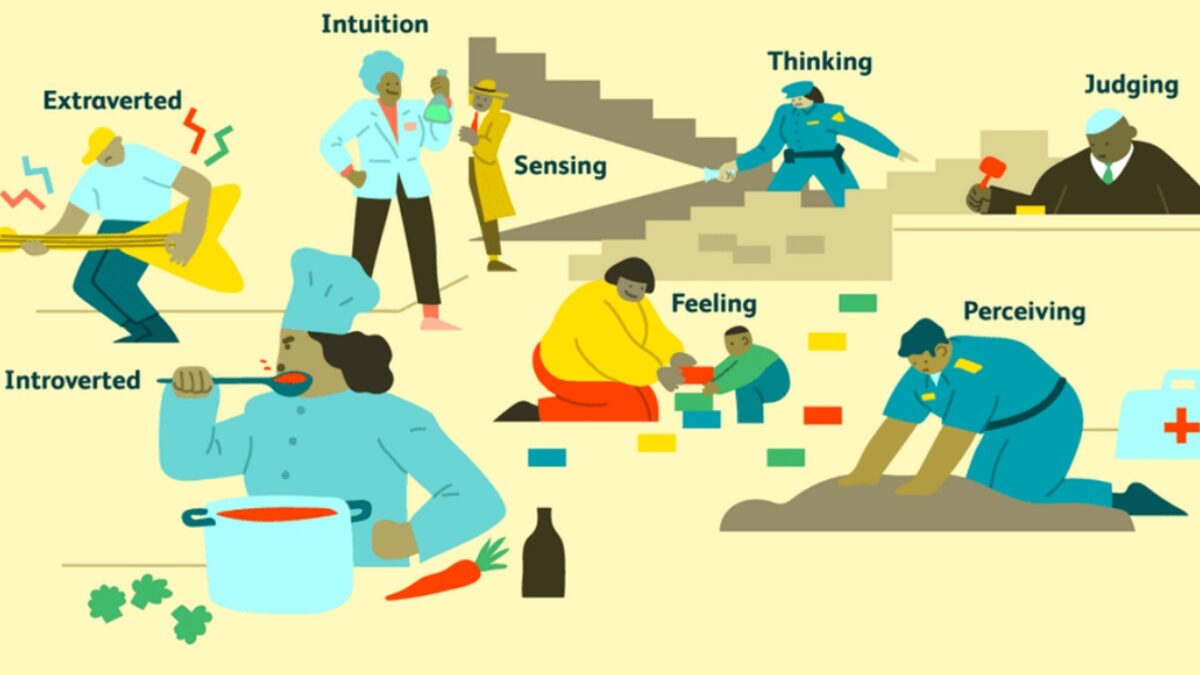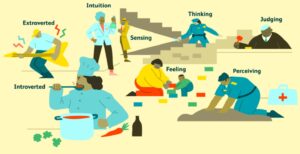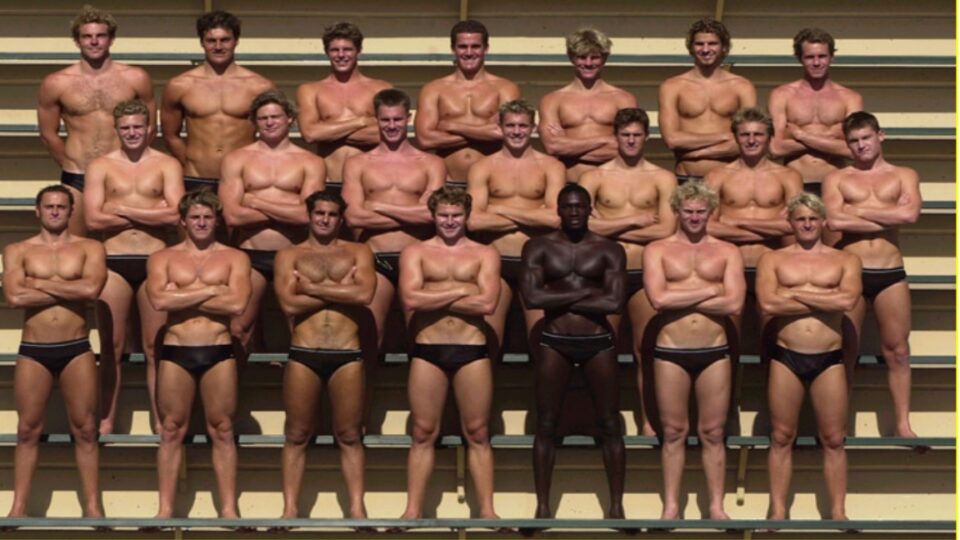Can We Really Re-invent Ourselves?

“Can We Really Re-invent Ourselves?”
Rev. Scott W. Alexander, Preaching
Unitarian Church North
NEW YEAR READING
Introduction: Rev. Alexander
This morning’s reading is by Boston Globe Columnist Linda Weltner, who is a member of the Unitarian Universalist Church in Marblehead, Massachusetts.
But before I share her words…Did you know that fully 40% of American adults will make New Year’s resolutions? As one author writes, “This constitutes the largest annual effort to improve our collective behavior – 140 million people exercising their resolve at the same time!”
Here is Ms. Weltner’s reflection on this annual ritual:
The ritual of making New Year’s resolutions has a deep purpose. At the darkest time of the year, it reminds us that a resolve is a serious psychic undertaking. Without reflection, intention and determination, we go on making the same mistakes over and over again, all the way to our graves.
What would you like to change in your life? Forget those old standbys like dropping 10 pounds or becoming more fit – which mostly distract us from the important questions. Are you happy with your job, with your relationships, with yourself? What are you putting off today that you’ll regret tomorrow? What are you doing to bring about the changes your desire? Are you making the most of every minute?
If not, what are you waiting for? If you are waiting for a better time, there is no time better than right now. The present moment is all there is. If you feel as if you aren’t ready yet, do what you have to do to ready yourself? The present moment is all you get. The people to whom you have things to say, will not be here forever. The doors you want to pass through, will not spring open without your touch. The present moment is all you need.
What is keeping you from living your life from the fullest? We all have a mental file where we store unresolved issues -- all that stuff we can’t deal with right now:
- That troubling distance between mother and child…
- The silent treatment between friends…
- Old grievances, still raw…
- Unexpressed resentments still chafing…
- A confession to be made…
- A long talk not undertaken…
- Broken promises and dreams deferred…
- A disquieting fear of change…
- A crippling sense of victimization…
- A necessary act of forgiveness…
You are the only one who knows what it is you are running away from. What have you filed away for some other time?... What words have you swallowed?…what decisions have you put off?…what loving gestures are you withholding?...What are you postponing everything until?
Not tomorrow, I hope, for tomorrow will never come.
As he lay dying of a brain tumor, George Bush’s campaign manager Lee Atwater was full of regrets: “Mostly I am sorry for the way I thought of other people” (he said) “I treated everyone who wasn’t with me as against me…You can acquire all you want and still feel empty…it took a deadly illness to put me eye-to-eye with that truth…I used to say that the President might be kinder and gentler, but I didn’t have to be…How wrong I was.”
[and then Weltner concludes]
Why not step back now, before death becomes our teacher, to imagine how our life will look to us when we reach the end of it? Within each of us is a voice, longing to be heard, that is waiting for the moment we dare to look within ourselves for guidance. Within each of us – buried under years of socialization – is the sure knowledge of what our true self desires. If you are not living according to you most deeply held values [and your heart’s deepest desires], what is holding you back?
Here ends the morning’s reading…
THE SERMON
So this morning, dear friends - as we begin a whole new year of reflecting together on our lives here at Unitarian Church North -- I wanted to ask a rather foundational human question. “Can We Really Re-invent Ourselves?” This question – which began rattling around in my ministerial brain just a few weeks ago -- is of particular relevance this Sunday because -- as we have already observed in this morning’s reading-- many people use the calendar transition into the new year as an natural opportunity to make fresh new resolutions (to themselves) about positive and constructive “behavioral” and “emotional” changes they wish to make in their lives. Now usually (in our American culture anyway) the New Year’s Resolutions people ATTEMPT to make (and notice I said “ATTEMPT to make!” for the uncertainty of “resolutions” is part of the question I am asking this morning) most of the resolutions people attempt to make involve concrete everyday behaviors related to PERSONAL health and well-being:
- “I resolve to go on a new diet and lose some weight…”
- “I resolve to exercise more regularly…”
- “I resolve to quit smoking or drink less alcohol…”
- “I resolve to work less and sleep more…”
- “I resolve to shop less and save more…”
- “I resolve to watch less television and spend more time reading…”
And then there are the RELATIONAL RESOLUTIONS people also attempt to make at this time of year:
- “I resolve to be a better spouse and partner…”
- “I resolve to spend more quality time with my kids and grandkids…”
- “I resolve to stay better in touch with family and old friends…”
- “I resolve to listen more and speak less…”
- “I resolve to be a kinder and gentler person…”
In addition to these “predictable” and perhaps even “common” New Year’s resolutions, I am sure that individual people also make idiosyncratic ones that are unique just to them…promises they make to themselves for the New Year that are fiercely private.
Now…as a minister (who job it is to always encourage us all to GROW AND DEVELOP to be better, fuller and more effective people…for what could be more fundamental to our Unitarian Universalist faith than the aspiration to becoming a better person?) I am (of course) favorably inclined to the process of people making (and sticking to!) personal resolutions – at this time of year or any time of year, for that matter. Surely it is as Linda Weltner suggested in this morning’s reading – there is never a better time than RIGHT NOW to work (with reflection, intention and determination) at becoming the kind of person you want to be…acting in your own best self-interest, and living according to your most deeply held values (and heart’s desires) to make life better for you (AND those around you).
But New Year’s resolutions have a terribly poor reputation in our culture, don’t they? Almost nobody takes them seriously, (or thinks they work for very long!) When I did an internet search “The folly of New Year’s Resolutions” a whole series of snarky articles popped up basically proclaiming that making New year’s resolutions is a “fool’s errand,” for a wide variety of reasons...most commonly our natural human lack of discipline and follow-through. According to U.S. News & World Report, the failure rate for New Year's resolutions is said to be about 80 percent, and most lose their resolve by mid-February.…and indeed I have personally witnessed this. Back when I was the member of the YMCA in Washington DC – during the decade I served one of our large churches in Bethesda, Maryland -- I took great amusement (and I will admit just a bit of irritation) when right after the first of January when each year (without fail) the locker and exercise rooms would suddenly be overwhelmed with people using them…only to have most of those same earnest people disappear (never to be seen again!) before the end of the month…all “the regular gym rats” like myself appreciated the predictable (and quick!) return to the health club’s usual peace and quiet (as everyone else’s New Year’s Resolutions failed!).
[PAUSE…]
So…if New Year’s Resolutions seldom work (because of the obvious weaknesses of human nature) this begs a LARGER question…the question I posed in my sermon title this morning…”Can We Really Re-Invent Ourselves?” Can we really ever engineer (by sheer force of will) SUBSTANTIVE AND LASTING CHANGE at the core of who we are?
I believe the place to begin seeking an answer to this question is by addressing THE NATURE OF HUMAN PERSONALITY…
[THE FOLLOWING IS PROJECTED UP ON THE SCREEN]
THE BIG QUESTION ABOUT THE NATURE OF “HUMAN PERSONALITY” IS SIMPLY -- IS IT FIXED or FLUID?
specifically the question of whether or not “Personality” (for any one of us) is “FIXED” or “FLUID”?
When I went on-line to research this question (and by the way…how ever did we adequately research anything – or figure anything out -- before the internet?) when I went on-line with this question, I did not find a simple, overwhelmingly-clear answer -- one way or the other. Indeed, there are plenty of credible advocates for BOTH SIDES OF THIS QUESTION!
On the “FIXED” side of the equation, a study by the “Live Science” group categorically declares [and now I quote them] “Personality is set for life by the 1st Grade…Our personalities stay pretty much the same throughout our lives, for our early childhood years to after we’re ‘over the hill.’ The results [of our study] show personality traits in children as young as first graders are a strong predictor of adult behavior. ‘We remain recognizably the same person,’ said study author Christopher Nave. ‘This speaks to the importance of understanding personality because it does follow us wherever we go across time and context.’”
Psychologist Kirsten Godfrey – who speaks for many other psychologists in the field – similarly suggests that [quote] “Personality by its definition a relatively stable set of patterns or thoughts, feelings and behaviors that reaches a peak of stability following adolescence and into early mid-twenties…so YES, to some extent, by the time you’re thirty, your personality has fully formed. [And then she concludes] The bottom line is that personality traits remain very stable over time.”
But this conclusion about the durability and consistency of our personalities over time is modified slightly by psychologist Paul Costa who writes, “It’s not that personality is [totally] fixed and can’t change [in any way], but it’s relatively stable and consistent. [Basically] what you see at 35 or 40 is what you’re going to see at 85 or 90.”
[PAUSE…]
OK…so a lot of experts in this field tell us our personalities “gel” early and stay pretty stable over our lifetimes…but that begs the larger (and prior) question: what exactly is “personality”?
[THE FOLLOWING IS PROJECTED UP ON THE CHANCEL SCREENS]
DEFINITION OF PERSONALITY:
“The combination of characteristics or qualities that form an individual’s distinctive character.”
Well, one dictionary I consulted said that personality is simply “the combination of characteristics or qualities that form an individual’s distinctive character.”’ I think another way of saying this is that:
[THE FOLLOWING IS PROJECTED UP ON THE CHANCEL SCREENS]
One’s “Personality” is the particular PERSONAL AND HABITUAL STYLE with which you routinely perceive, understand and react to life and persons.
Now my guess is that most of you would agree with the conclusion that ALTHOUGH here is AN ALMOST INFINITE SUPPLY OF WIDELY DIFFERING HUMAN PERSONALITIES in this world of ours…most of us fall into some rather predictable and common personality “types.”
Perhaps the leading scientific topology of “personality types” is the Myers-Briggs Type Indicator:
[THE FOLLOWING IS PROJECTED UP ON THE CHANCEL SCREENS]

The Myers-Briggs Type Indicator
THE FOUR “PERSONALITY TRAIT CONTINIUMS” OF MYERS-BRIGGS
- Extraversion-Introversion (E-I scale)
- Sensing-Intuition (S-I scale)
- Thinking-Feeling (T-F scale)
- Judging-Perceiving (J-P scale)
which I am sure most of you have (at some time or another) experienced in your educational and professional lives…how many of you have taken this insightful test at least once?
[SCOTT PAUSES FOR A SHOW OF HANDS…ASSUMEDLY MOST IN THE CONGREGATION RAISE THEIR HANDS]
So then many of you know that the Myers-Briggs test suggests that all of us fall somewhere along these four fundamental “Personality” continuums, that define the particular “style” (how we routinely process information…see, understand and react to the world and engage situations) that we bring to the events and experiences of our daily lives. The important point of Myers-Briggs is that there is no “right or wrong”…”better or worse” to our basic personality traits…they are merely DESCRIPTIVE of our STYLISTIC DIFFERENCES (as we fall along the four continuums). According to Myers-Briggs, people naturally differ (and vary) as to how they both perceive and react to life within and around them…and this topology even suggests that organizations and businesses are STRENGTHENED by the presence of differing personality types in leadership, because each “personality types” has different strengths and insights to offer any human community.
So…to personally confirm what the psychologists are saying about the relative stability of personality type, every time I have personally taken the Myers-Briggs inventory over the decades of my life, I have consistently tested out at an “E-N-F-J” type! And this confirms something fundamental I think I know about my personality…since I have been a little boy, I have both charmed (and irritated) those around me with my extroversion…my energy and speed…my spontaneity…my openness…my curiosity…my optimism…and my short attention span! And I suspect that the same is true for most of you…that (whether or not you have taken this particular “personality test” that you recognize that your basic personality has basically remained with you (basically unchanged) through your entire life.
[MYERS-BRIGGS SLIDE COMES DOWN…THE FOLLOWING IS AGAIN PROJECTED UP ON THE CHANCEL SCREENS]
AGAIN…THE BIG QUESTION ABOUT THE NATURE OF “HUMAN PERSONALITY” IS -- IS IT FIXED or FLUID?
But…all this information about “personality type” still leaves my central question for the morning unanswered…is human personality fundamentally FIXED or FLUID?
This question remains intellectually unanswered because on THE OTHER SIDE of the personality question, there are also many reasonable voices (and credible studies) which suggest that our “personalities” (despite their basic clarity and durability) CAN also be FLUID…and CAN change (even significantly!) over time.
Writer Jeffery Bonkiewicz [BONK-EE-WICKS] expresses this basic “fluidity” outlook as clearly (and boldly) as any I found in an article simply entitled, “Our Personality is Up To Us…You Get to Choose How You Wish to Be” He writes:
“Personality is fluid…it isn’t fixed. It evolves along side of you. We’re not the same person at 40 that we were at 20…. Each new experience changes us slightly. Travel changes us. Culture changes us. Work changes us. Hobbies change us. Learning new skills changes us. Our friends change us. Our parents change us. Mentors change us. Siblings change us. [Children and grandchildren change us.]….How can personality possibly be fixed when all these different people and experiences shape it and, as a result, us? It can’t be. Personality is fluid and malleable.
[and then Bonkiewicz [BONK-EE-WICKS] -- who is obviously very optimistic about the prospect for us being able to substantively change ourselves for the better -- goes on]
The fact that personality is malleable should be exciting to people. The fact that personality is fluid means that if there is a trait you want that you do not personally possess, it is learnable! You can learn how to get or be that thing you want. You can develop it. Want to become a great public speaker but you’re currently shy and reserved?...you can take courses and practice and get to where you want to be. Want to become funnier and make your friends and colleagues laugh all the time?...you can work on your comedy and hang around funny people in order to become funnier. What if you’re more of an introvert and desire to be more like your outgoing friends who are more extroverted?... Yep, you can learn from them, too. You can develop new social skill sets and take an active interest in others in order to be seen and felt as extroverted. All totally learnable — for anyone. This is how exciting a fluid personality is. You can learn how to be anyone you want to be. You [get to] shape you. You get to decide which skill sets you want to develop. You decide who you want to become and then take daily action to get there.
[And then Bonkiewicz [BONK-EEE-WICKS] categorically ends]
Our personality is up to us…You choose HOW you wish to be… You choose WHAT areas of your life you desire to focus on and improve. You choose WHERE you want to go and WHICH DIRECTION is the right one for you. We choose our demeanor and how we wish to act within any given context. All of this is developable if we believe it is.
[PRIOR SIDE WITH “PERSONALITY” QUESTION COMES DOWN OFF CHANCEL SCREEN]
But don’t just take Mr. Bonkiewicz’s [BONK-EEE-WICKS] cheerful word for it! There are additionally many other psychologists and therapeutic models which similarly suggest that we human beings CAN significantly change our personalities (and/or our behaviors, our thoughts, our beliefs, even our emotions!) if we simply work at it with diligence and purpose.
Just one example of this thinking if I might.
[PICTURE AND CAPTION OF MARTIN SEGILMAN IS PROJECTED UP ON THE CHANCEL SCREENS]
Dr. Martin Segilman
“Learned optimism”
Dr. Martin Segilman, in his 1990 classic book “learned Optimism: How To Change Your Mind and Your Life” suggests that even something as fundamental to the personality as “Pessimism” can be un-learned…in other words, even if you habitually “look on the dark side of things” you can learn to be an OPTIMIST! Listen to his own words:
I have been studying optimists and pessimists for twenty-five years. A pessimistic attitude may seem so deeply rooted as to be permanent. I have found, however, that pessimism is escapable. Pessimists can in fact learn to be optimists, and NOT through mindless devices like whistling a happy tune or mouthing [cheerful] platitudes, BUT BY LEARNING A NEW SET OF COGNITIVE SKILLS.
Habits of thinking need not be forever. Pessimists can learn a new set of cognitive skills…individuals can choose the way they think…you can dispute your own negativity…You can learn a set of skills that free you from the tyranny of pessimism and allow you to use optimism when you choose….Rather than ducking our disturbing [and negative] beliefs, a more lasting remedy is to DISPUTE them…[you must learn] to argue with yourself . Give [your negative beliefs] an argument. Go on the attack. By [directly and] effectively DISPUTING the [pessimistic] beliefs [when you encounter adversity in your life], you can change your customary reaction from dejection and giving up…to activity and good cheer.” [And then Dr. Segilman goes on in the book to give many concrete examples as to precisely how pessimistic personalities can learn new, more positive cognitive skills.
[PICTURE AND CAPTION OF DR. SEGILMAN COME DOWN OFF CHANCEL SCREENS]
Similarly, there are many therapists (and schools of therapeutic thought…like “Cognitive Behavior Therapy” and “Cognitive Restructuring Therapy” that I don’t have the time this morning to spell out in great detail…you can read more about them “on-line”) which suggest that if people are unhappy with aspects of how they habitually react to situations in their lives, that they can (by choosing to first change their actions and behavior) eventually change both their thinking and their feelings in ways that will bring them more satisfaction and success in their lives. The Rev. Dr. John Brown, a United Methodist minister (and psychotherapist) who worked with me at the UU Fellowship of Vero Beach where I was a minister for 11 years gave an example of this in one of his sermons…when he urged everyone (in that congregation) to begin each day by finding “something to smile about…” a simple, concrete, physical behavior that can lift your mood for the whole day. It turns out there is real science behind this simple act, for as one study puts it, the simple physical act of “Smiling” (of lighting up your own face)
“Can trick your brain into happiness — and boost your health. A smile spurs a powerful chemical reaction in the brain that can make you feel happier...Science has shown that the mere act of smiling can lift your mood, lower stress, boost your immune system and possibly even prolong your life.”
And there are countless other examples which psychologists (and other scientists) cite which indicate that we human beings are capable (in many ways) of bringing positive (and enduring) change to our lives – including making significant changes to the very structures of our personalities!
[PAUSE…]
Now…while I am (as an optimistic Unitarian Universalist who believes in the possibility of human growth and transformation) inclined to support those who suggest that we have a great deal of freedom and power to change our behaviors, beliefs and feelings (and even our personalities)…I must also emphatically say here that I believe most of us (because – as we have observed earlier in the sermon -- are deeply rooted in our established personalities and habitual predilections) find such significant personal transformation “easier said than done.”
Let me speak personally for a moment. I do NOT think that my “personality” – this curious-and-durable-concoction that is (and has been) “Scott Alexander” for all these years -- is completely within my control…all respects to Mr. Bonkiewicz [BONK-EE-WICKS] who has such confidence in my “malleability” aside! It would be my personal observation that my BEST habitual behaviors, thoughts and feelings are pretty well entrenched in my personality…as are my WORST habitual behaviors, thoughts and feelings. My personal style of human being (while not intractable) does feel pretty persistent and insistent to me!...and any real, significant, substantial change to my personality seems like a pretty big undertaking.
Let me give you one example. My whole life I have been highly susceptible to IMPATIENCE! As far as I (and those who know me best) are concerned, this is NOT an admirable, useful or charming trait!...and this is something I would like to change about my habitual style as a human being. It does not work for me to just vaguely say to myself, “Scott, for God’s sake. be less impatient!” I rather need concrete “self-talk” and “new personal behavioral rules” to move myself toward beings significantly less impatient. The technique I have currently settled on is that when I feel myself getting impatient (and irritated with some situation that is not moving along aa quickly or smoothly as I imagine it should) I say to myself, “OK, Scott, you’re feeling impatient…this is not going as you planned…now what is it going to take for you to settle into this moment (right where you are), and find a way to be satisfied, gracious, observant and calm?” My new personal technique and “rule” is to: first
1) name my impatience inside, and then…
2) work with myself to accept and embrace the “flow” and “rightness” of the moment.
Now…I will confess that this “self-talk” doesn’t always work like I want it too. Sometimes (despite my best intentions) I still boil over in frustration…but more-than-not, it DOES work…and (overall in my living…over time) I have become a much less impatient person as a result.
And thus I finally arrive at what I really want to say to you this morning. I believe that because (as may psychologists point out) our habitual personalities are pretty durable things, if we are ever going to “re-invent” ourselves it will only be accomplished with the implementation of new (and intentional) personal rules, practices, habits…and sometimes the “outside counsel” of – family and friends -- and sometimes even a therapist or counselor to help us with practical resolve. If I’m going to really change undesirable or unproductive aspects of my rather-durable personality and behavior (and thus “re-invent” and improve myself in the process) I need “the structured help” of my-own-best-self and others.
[PAUSE…]
So…let me close by coming FULL CIRCLE to (as clearly as I can) answer the question I asked at the very beginning of this sermon: CAN WE REALLY RE-INVENT OURSELVES?
My answer is sure we can: absolutely…kinda…sorta…somewhat!
[THE FOLLOWING IS PROJECTED UP ON THE SCREEN]
Everything we know about the vagaries of human personality and behavior suggests that we human beings are both (in the self-same moment) significantly malleable and substantively intractable.
Everything we know about the vagaries of human personality and behavior suggests that we human beings are both (in the self-same moment) significantly malleable and substantively intractable.
But, despite my less-than-full-throated reassurance about the likelihood of radical personal transformation, let me remind you (in closing) what it means to be a Unitarian Universalist.
[THE FOLLOWING IS PROJECTED UP ON THE SCREEN]
Choosing to be a part of this liberal faith tradition means that you willingly and diligently SPEND A LIFETIME striving (as best you can) to become a better, healthier, gentler, kinder and finer human being.
While we can (and should readily like ourselves just for who and what we already naturally are) we must also never be satisfied with our rough edges (and unappealing quirks). We must always be “on the road” to a FULLER AND FINER SELF…
So let’s get busy folks…WORKING ON OURSELVES TO BECOME THE BEST PERSONS WE CAN POSSIBLY BECOME. This is a complicated business (this journey of self-improvement) but it is well worth the effort.
Amen.



